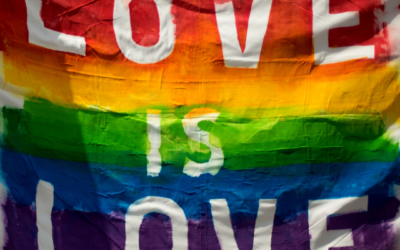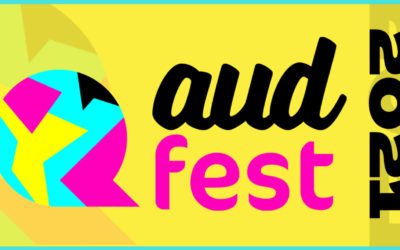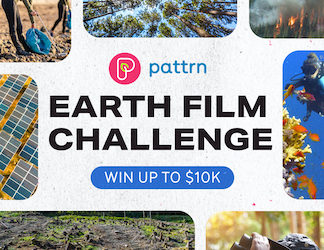Blendoor is a mobile job matching app that hides candidate name and photo to circumvent unconscious bias and facilitate diversity recruiting in tech companies. Studies have shown that two identical resumes with only a name difference (i.e., Joe to Jose) can yield 100% difference in the response rate. Blendoor’s goal is to highlight the information that’s most relevant to a candidate being a “good fit” independent of race, gender, ability, military history or sexual orientation.
Watch Stephanie Lampkin‘s pitch by clicking the video above.
What inspired you to start this company?
I am a Black, queer, woman that was born on welfare to a single mother who at one point was homeless while pregnant with me. However, my first image of a computer scientist was a Black woman (my aunt), so I rarely suffered from “imposter syndrome.” I started coding at 13 and took the first AP Computer Science course offered at my HS. Despite a total family household net income of ~$40K/year, I was fortunate to graduate with an engineering degree from Stanford (with very little debt), had several technical internships, a 5 year career at Microsoft, and earned an MBA from MIT Sloan. Yet, 6 months after MIT graduation I was still rejected after interviewing for an Analytical Lead position at Google. I was deemed better suited for a sales/marketing role. I later learned that they have never hired a non-White/Asian person for that role and it was estimated at the time that out of 53,000 employees, Google employed only 12 African-American women in technical roles. This is consistent all across tech: 2% Black, 3% Latino,70% male and the claim is that it’s a pipeline problem (not enough qualified women & people of color). So I built Blendoor to create more opportunities for people often overlooked and produce data to debunk the myth that it’s mostly a pipeline problem.
What has been your greatest lesson thus far?
The most exciting realization that I’ve had in the past two years is that I am currently doing exactly what I was created to do. My favorite quote from Oprah is “You will find true success and happiness if you have only one goal. There really is only one, and that is this: To fulfill the highest, most truthful expression of yourself as a human being.” One quiet day at home I sat and just pondered why/how did I get here? From being born on welfare in SE Washington, DC, to a Stanford graduate and homeowner at 21 vacationing on Martha’s Vineyard, to renting a small room in SF trying to launch a software company with barely enough cash to cover basic living expenses. It all came to me at once and made perfect sense. All of the challenges and all of the triumphs were pivotal to my current path. Growing up poor has given me the resourcefulness necessary to run a startup with a low burn rate. Achieving success and luxury at a young age gave me the confidence to know my current net worth is not a reflection of my true earning potential. Most of all realizing how different my life would be if I weren’t given opportunities to demonstrate my potential now makes me passionate about giving others the same opportunities.
What is the biggest pain point you’re solving within your business?
Human capital is the largest wasted resource in the world. Millions of people are unemployed or underemployed and a large proportion of them are women and people of African or Indigenous decent. Many organizations are faced with human capital challenges because of retiring employees, skills gaps, and lack of diversity. Thus, these organizations are actively looking for innovative ways to find talent. At the peak of our current technology era, hundreds of organizations have emerged to help diversify the STEM pipeline; most often in the form of teaching women and under-represented minorities (URMs) how to code. However, this doesn’t address the problem that gate-keepers at many companies are wired for pattern matching. Often times if one does not look like the typical engineer (young, White or Asian, Male) they are regarded as less qualified. A study published in The National Bureau of Economic Research found that when identical resumes were sent in response to help wanted ads with just a name difference “John” vs “Jamal,” the resumes with the name “John” yielded almost a 100% higher response rate. Another study found that having a “white-sounding” name on a resume is equivalent to 8 years of additional work experience.
What’s your proudest moment thus far? (Go ahead and brag!)
Being invited to the first ever White House Demo Day, where President Obama said “The next Steve Jobs might be named Stephanie”
Anything else you’d like to add?
If you have a brain, you have bias. Our goal with “merit-based matching” is to help recruiters mitigate the blind-spots of bias (and pattern matching) much the same way rear and side view mirrors in a car help drivers mitigate the blind-spots inherent in car design. The traditional resume is ripe for disruption. By eliminating names, photos, and dates from candidate profiles we are able to drive matching based on the information that’s actually relevant to the likelihood of someone performing well in a role. Our initial focus is facilitating matching based on candidate skills, education, and work experience, however, our long-term goal is to utilize social science research around measurable talent, learning ability, personality (i.e. Meyers-Briggs), culture fit, and core values assessments to facilitate even better candidate-company matching. But, we want to do this with well-designed user experiences and learning algorithms tailored to the millennial-mind (i.e. Netflix).
You can watch all 10 of the Women Startup Challenge Finalists pitch their companies here. Follow this link for more information on the Women Startup Challenge.
The Audience Awards provides filmmakers opportunities to create short video content for brands and win money. Sign up today for your free account and join film’s community.



